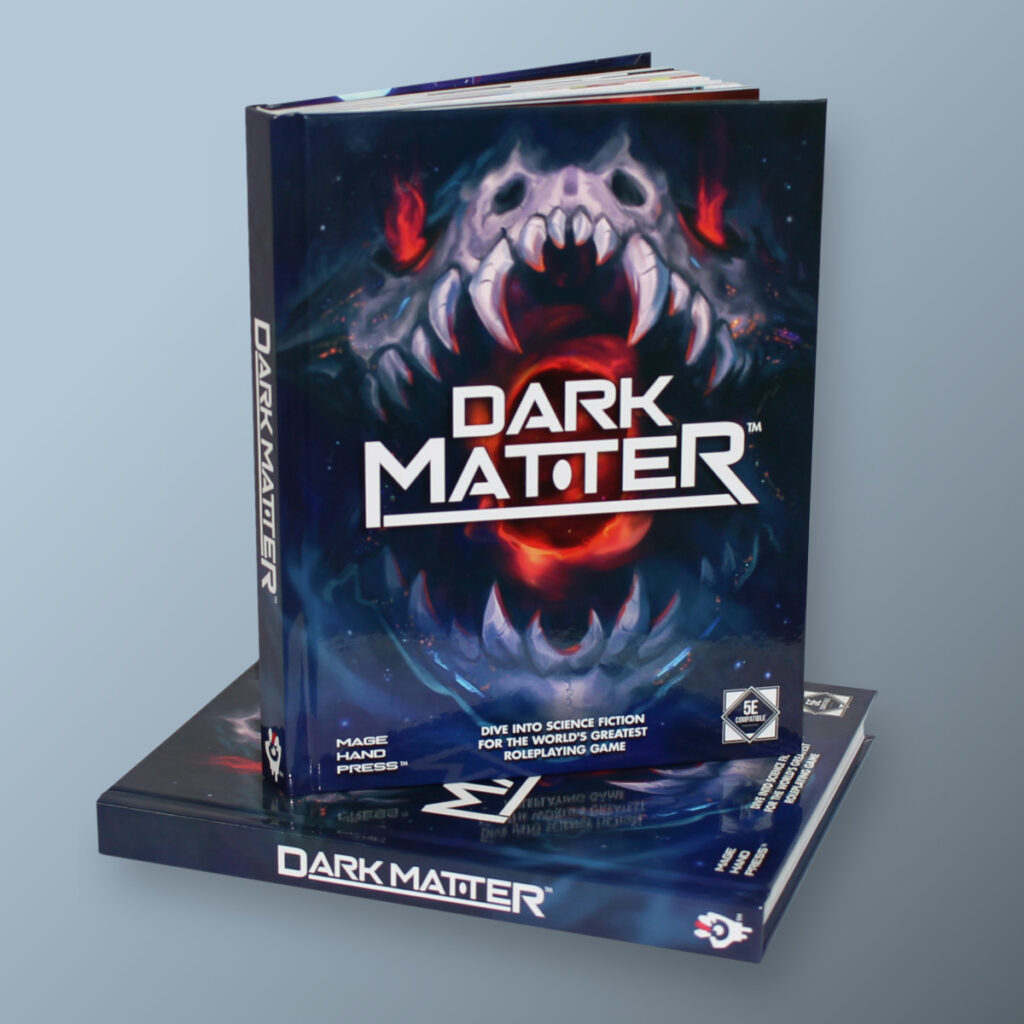Variant Rules
Notes from the Nails: this is a question that comes up from time to time. I thought I’d write up my thoughts on the matter for posterity.
Using Skill Checks in Combat
When people talk about the three pillars of D&D; combat, exploration and interaction; they often treat the skill system as something that ‘belongs’ to the exploration pillar and that has limited relevance to the other two (particularly combat, since Charisma checks do tend to come into play in social situations). While it is true that the core rules do not provide many codified uses for skill checks in combat, I see no reason why this should be the case. Skills are there to be used, and there are plenty of simple actions that should be available to anyone regardless of class. Thus, I have decided to write up a set of new action options (and a few new reactions) built around skill checks, much like those on page 271 of the DMG. I hope you find them useful!
Backflip
You take advantage of your agility to nimbly leap out of the way of attacks.
When a creature you can see makes an attack against you, you can use your reaction to perform a backflip. Make a Dexterity (Acrobatics) check opposed by the attack roll against you. On a success, you move 5 feet away from the attacker without provoking opportunity attacks. If you beat the attack roll by 10 or more and this movement puts you out of range of the attack, the attack misses. If you succeed by less than 10, the attacker can move and reattempt the attack. On a failure, you do not move from your current position, and you fall prone after the attack is resolved.
Calm Beast
Using your animal handling skills, you convince a hostile beast to stop fighting against you.
You can only use this ability against a hostile creature within 30 feet that can hear you. It must have an intelligence score of 5 or lower or be a beast. As an action, you can make a Charisma (Animal Handling) check against a DC equal to 15 + the creature’s CR (rounded down). On a success, the creature is charmed by you for 1 minute. While the creature is charmed, it suspends its hostility towards you. The charmed condition ends early if you or one of your companions does or attempts to do anything harmful to the target. On a failure, the creature is immune to being charmed by you by this ability for 1 hour.
Camouflage
You use your knowledge of stealth techniques to blend into your surroundings.
You can use your action to make an Intelligence (Stealth) check, following the standard rules for hiding. If your roll is higher than the passive Wisdom (Perception) scores of all the hostile creatures that could have seen you, you become hidden, exactly as if you had taken the Hide action.
Careful Footing
A little knowledge about nature can be very useful when navigating rough ground.
When you take the Dash action on your turn, you can make a DC 10 Dexterity (Nature) check. On a success, you ignore any natural, nonmagical difficult terrain for the duration of your turn, but on a failure you gain no benefit and fall prone at the end of your movement.
Chant
When all else fails, you might find yourself with no option left but prayer.
You can make a DC 10 Wisdom (Religion) check as an action on your turn. On a success, you gain 1 temporary hit point that lasts until the start of your next turn.
Counter Hold
For some people, the best way to fight a grappler is to beat them at their own game.
When a creature successfully inflicts the Grappled condition on you, you can use a reaction to attempt to grapple them in return, as long as you are not incapacitated and you have at least one free hand. Both you and the target make a contested Strength (Athletics) check; if you win, the target is grappled by you (this does not change the fact that you are still grappled by them, but does prevent them from moving you).
Distract
You perform a loud and distracting routine that makes it difficult for your enemies to pay attention to anything else.
When you see a creature within 30 feet of you make a Wisdom (Perception) or Intelligence (Investigation) check, you can use your reaction to perform a Charisma (Performance) check to distract them. If your roll beats theirs, they cannot detect anything other than you, even if their roll would otherwise have been high enough to spot a hidden creature or object.
Entice
Using honeyed words, persuasive rhetoric and clever arguments, you convince a hostile creature to stop fighting against you.
You can only use this ability against a hostile creature within 30 feet that can hear and understand you. It must have an Intelligence score of 6 or higher and not be a beast. As an action, you can make a Charisma (Persuasion) check against a DC equal to 15 + the creature’s CR (rounded down). On a success, the creature is charmed by you for 1 minute. While the creature is charmed, it suspends its hostility towards you. The charmed condition ends early if you or one of your companions does or attempts to do anything harmful to the target. On a failure, the creature is immune to being charmed by you by this ability for 1 hour.
You have advantage on the check if the target’s alignment is the same as yours, but you have disadvantage on the check if the target has allies that are also hostile toward you.
Expose Weakness
No warrior is perfect and, by studying your opponent’s technique, you can pick up on and exploit any minute flaws that exist.
You can use an action on your turn to make an Intelligence (Investigation) check against a creature you can see within 15 feet. The DC for this check is equal to 10 + the creature’s CR (rounded down). If you succeed, the next time you hit the creature with an attack on your turn before the end of your next turn, the attack deals damage as a critical hit.
Follow
By focusing all your senses on a single target, you are able to follow their movements and foil their evasive maneuvers.
When a creature you can see within 60 feet uses the Dodge action, you can use your reaction to make a Wisdom (Perception) check, contested by the target’s Dexterity (Acrobatics) check. If you win, you can ignore the effects of the creature’s Dodge.
Gesticulate
You sneakily flash an obscene gesture in such a way that only one creature can see it, in the hopes of provoking it into rash action.
You can use an action on your turn to make a Dexterity (Sleight of Hand) check against a creature that can see you within 30 feet. The DC for this check is equal to 10 + the creature’s Wisdom save bonus. On a success, the target has disadvantage on the first attack roll it makes before the beginning of your next turn, unless that attack roll is against you.
Improvise
A skilled survivalist can often improvise solutions on the spot, turning whatever they have to hand into the exact tool they need.
As an action on your turn, you can make a Wisdom (Survival) check to cobble together a non-consumable item, weapon, shield, or piece of ammunition from the tables on PHB 145, 149 or 150. The DC for the check is equal to 10 + the list price of the item in gp (rounded up). Even if you are successful, the item breaks and becomes useless after 1 minute.
Meditate
You clear your mind and concentrate your mental energy to increase your resistance to harmful magic.
As an action, you can make a DC 15 Wisdom (Arcana) check. On a success, you have advantage on all Intelligence, Wisdom, and Charisma saving throws until the start of your next turn.
Misdirect
You use lies and trickery to convince on enemy that they’re about to be attacked, when in fact they are not.
You can use this action to target a hostile creature within 30 feet that can hear and understand you. You make a Charisma (Deception) check, contested by their Wisdom (Insight) check and, if you win, the target has disadvantage on the first attack roll it makes on its next turn.
Overawe
Sometimes, scaring the enemy off is as much a victory as killing or incapacitating them would be.
You can use an action on your turn to make a Strength (Intimidation) or Charisma (Intimidation) check against a creature within 30 feet that can see and hear you. The DC for this check is equal to 10 + the creature’s Wisdom save bonus. On a success, the target is frightened of you until the end of its next turn.
Promote Recovery
A good medic does not just save lives, but also makes efforts to ensure their patients make full and speedy recoveries after treatment.
As an action, you can make a DC 10 Wisdom (Medicine) check to provide supportive care to a creature within 5 feet of you. The first time that creature receives healing before the start of your next turn, the amount of hit points it regains is increased by your level.
Read Movements
In combat, creatures often give away small clues as to how they are going to move before they actually start moving.
You can use an action on your turn to make a Wisdom (Insight) check against a creature you can see within 30 feet, contested by the target’s Dexterity (Stealth) check. If you win, you have advantage on opportunity attacks against that creature until the start of your next turn.
Tactical Shift
Knowing about historical battles can provide tactical insights that you can apply on the battlefield.
As an action on your turn, you can make a DC 15 Intelligence (History) check. On a success, you can split your movement for this turn between yourself and up to 4 willing creature(s) of your choice within 60 feet. You decide how much of your movement is given to each other creature, but where they move. Creatures benefiting from this ability remain subject to any difficult terrain, opportunity attacks, and other effects that they normally would be subject to if they were moving on their own turn.
Wrestle
When you have your foe at your mercy in a grapple, you can manipulate them in a number of ways.
If you have a creature grappled and at least two free hands (including those that you are using for the grapple), you can use an action on your turn to make a Strength (Athletics) check contested by either a Strength (Athletics) or Dexterity (Acrobatics) check from the target. If you win, you can inflict one of the following outcomes:
Grab Object. You take one object that the creature is wearing or holding.
Pin. The target is forced prone and cannot get up until the grapple ends.
Throw. You throw the target up to 10 feet in any direction. This causes the grapple to end. If the target is smaller than you, the maximum distance you can throw them is doubled for every size category that they are smaller. So, for example, a Medium creature could throw a Tiny creature up to 40 feet.
Changelog: 08/06/2018: Wrestling throw distance increased for smaller targets.



